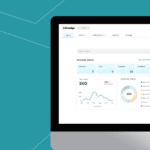
Managing Assets and Vehicles in BizEdge

5 business success strategies for 2022
Countries in different parts of the world including Nigeria have the legislative power to impose taxes on their citizens at a particular rate. They are used to support the government in generating revenue for expenditure on social welfare and improving society.
Small businesses are majorly interested in making money and not considering taxes, however, one thing we must note is that paying taxes is statutory in every business registered and operating in a particular state/government. Find tips on taxes for growing businesses below.
Tips on Taxes for growing businesses
Penalties for failure to pay tax
Non-payment of taxes carries several penalties; every tax evaded has its own punishment. Generally, under Section 66 of the Federal Inland Revenue Service’s Companies Income Tax Act tax collectors have the power to seize/auction off the goods and even premises of defaulting taxpayers to recover monies owed. Therefore, it is completely legal for authorities to seize assets if taxes are not paid.
Paying tax as a small business
Not every business can afford a professional’s fee. Paying taxes can be a strenuous process that gets easier with time. There are helpful solutions for tax filing. Discover what BizEdge is building to improve tax filing for all business sizes.
List of taxes in Nigeria
Companies Income Tax (tax deducted from the profit of the business at the end of its financial year). Companies that are registered as limited liability, limited by guarantee and public limited liability are required to pay company income tax to the Federal Inland Revenue Service (FIRS) on an annual basis. According to the Finance Act 2019, the tax rate for Large companies – 30% (with a turnover of 100 Million Naira), medium companies – 20% (with a turnover of 25 Million Naira to 100 Million Naira), small companies (with turnover less than 25 Million Naira) – exempted from paying Company Income Tax.
Tertiary Education Tax (EDT): Education tax is charged on companies’ assessable profit at the rate of 2% for each year of assessment. It is paid alongside Company Income Tax.
Personal Income Tax (tax deducted from an employee’s salary by the employer and paid to the State Internal Revenue Service (SIRS) on a monthly basis). Employers are required to register with their respective tax authority for the purpose of deducting income tax from employees’ salaries. After six months of commencement of business, employers are required to deduct tax from employees’ emoluments and remit to the respective tax authority, usually the SIRS. These are to be remitted within ten days of the end of every month.
Direct Assessment tax (tax based on assessment raised directly on self-employed persons (e.g professional contractors, traders, landlords). The self-employed person will without notice or demand file a return of income earned in the preceding year using a tax form from a SIRS. Direct Assessment is based on the directors’ income for the last three years. The income is taxed and remitted to the SIRS.
Value Added Tax (VAT) (tax charged on the value of goods and services and it’s payable to the Federal Government). These taxes are payable by customers and are collected based on the invoices given to customers. VAT is solely administered and managed by the Federal Inland Revenue Service.
There are two types of VAT namely Input VAT and Output VAT. While input VAT is charged on the purchase of taxable goods and services, output VAT is charged on the sale of goods and services. Companies with a turnover of less than 25 Million Naira threshold are exempted from including VAT on their invoice, collecting and remitting VAT to the Federal Inland Revenue Service (FIRS). However, they must file a nil return with the Revenue office.
The standard rate of VAT in Nigeria is 7.5%. VAT remittance and filling should be rendered on or before the 21st day of the month following the month of purchase or supply. Penalties for not remitting and filling VAT attract a penalty fee of N50,000 for the first month and N25,000 for the subsequent month of not filling.
Goods exempted from VAT include medical and pharmaceutical products, basic food items, baby products, books and educational materials, and life insurance. Services exempted include medical services, training and education organised by not-for-profit or public educational institutions.
Development levy: A flat rate of N100 for each employee over the financial year.
Withholding Tax (WHT) (an amount deducted from the payment made to a taxable person for the supply of goods and services). It’s an amount deducted from the source, it serves as an advance payment of tax. The sum is used to offset any subsequent tax liability that may be due.
WHT is the payment of income taxes in advance and utilised as a tax credit to settle an income tax liability for the year the income relates or income tax of future years. It is a statutory deduction that a taxpayer is required to pay, failure to deduct attracts sanctions. The objective of withholding tax is to increase the tax net of the government and minimise tax evasion.
Withholding taxes are collected by both the State Internal Revenue Service and the Federal Inland Revenue Service. SIRS collect WHT due from individuals and unincorporated business entities based in a state. While FIRS collect WHT due from corporate bodies, and external affairs officers. Examples of income subjected to WHT include royalties, rents, interest, dividends, directors’ fees, consultancy fees, professional fees, commissions, technical and management fees, construction income, agency arrangements and contracts of supplies. WHT is to be remitted to the relevant tax authorities within 21 days from the day the amount was deducted.
Quick note: Since tax rules change over time and can vary by location and industry, consult a CPA or tax advisor for specific guidance. For more information on tax filing for your business, visit firs.gov.ng.
